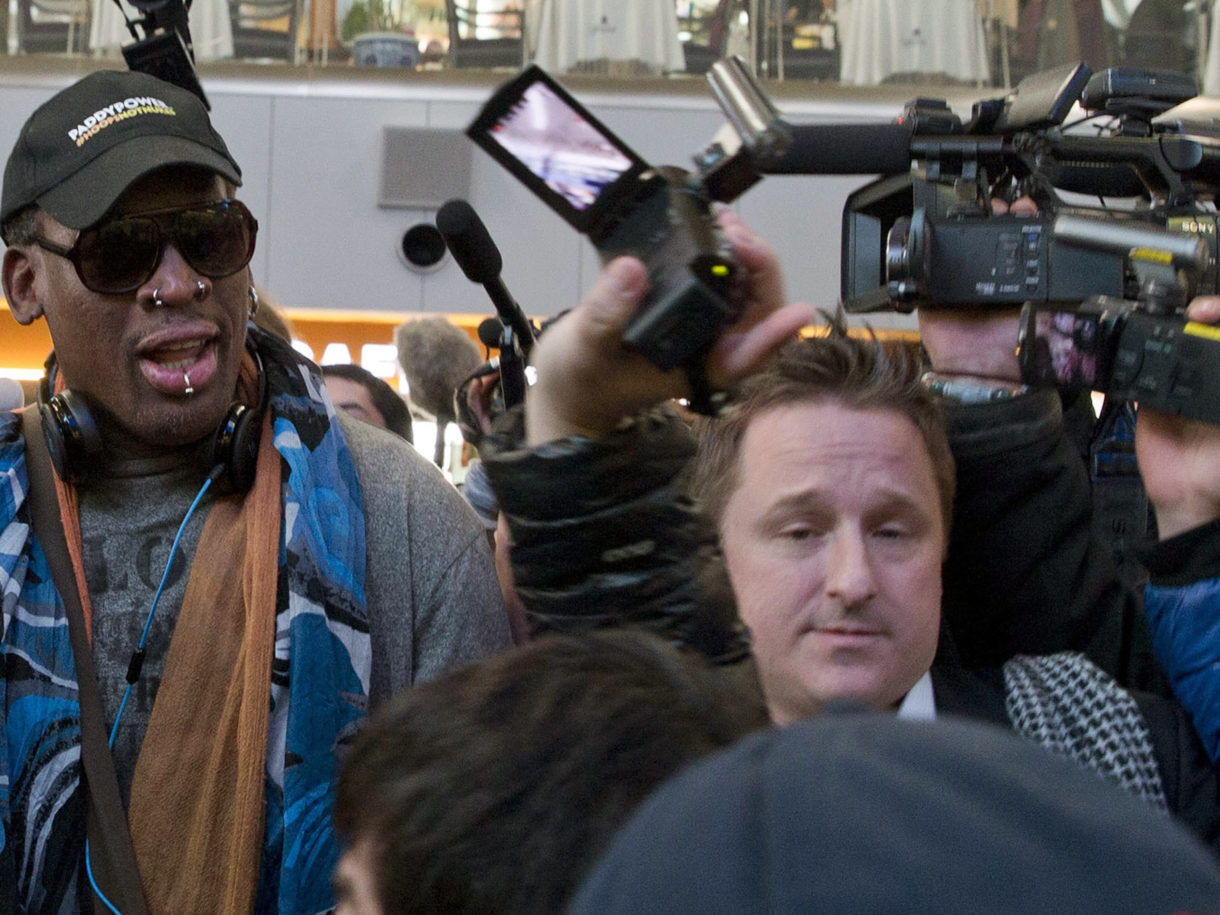China has detained a second Canadian citizen this week, a Chinese government news site has confirmed. China’s state security bureau is holding Michael Spavor on suspicion of jeopardizing China’s national security. As NPR’s Rob Schmitz reports, the detentions appear to be retaliation for Canada’s arrest of Huawei executive Meng Wanzhou.
Spavor is director of the Paektu Cultural Exchange, a company that runs cultural and business exchanges with North Korea, Schmitz reports. According to The Associated Press, Spavor is one of the only Westerners to have ever met with North Korean leader Kim Jong Un, and helped arrange a visit to North Korea by former NBA player Dennis Rodman.
Spavor went missing earlier this week, after first contacting Canadian authorities to let them know he was being questioned by Chinese authorities, according to Reuters.
Spavor’s detention comes days after Beijing authorities detained former Canadian diplomat Michael Kovrig, “ratcheting up tensions in this diplomatic row,” wrote NPR’s Laurel Wamsley. The Brussels-based International Crisis Group said Tuesday that it is “doing everything possible to secure additional information on Michael’s whereabouts as well as his prompt and safe release.”
Chinese officials have not linked the detentions of the two Canadians to Meng’s arrest in Vancouver, but Canadian diplomatic experts say they have no doubt the two cases are related, Schmitz reports.
Canada arrested Huawei chief financial officer Meng Wanzhou “on suspicion of misleading banks and putting them at risk of violating U.S. sanctions on Iran,” Schmitz reports. Canada held Wanzhou at the request of the U.S., which is seeking her extradition. Wanzhou is currently free on bail while awaiting her extradition hearing.
The U.S. sought Wanzhou’s arrest on charges of fraud. “Investigation by U.S. authorities has revealed a conspiracy among Meng and other Huawei representatives to misrepresent numerous multinational financial institutions,” according to the arrest request. “The motivation for these misrepresentations stemmed from Huawei’s need to move money out of countries that are subject to U.S. or E.U. sanctions — such as Iran, Syria, or Sudan — through the international banking system.”
9(MDEwNzczMDA2MDEzNTg3ODA1MTAzZjYxNg004))
